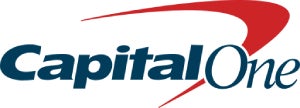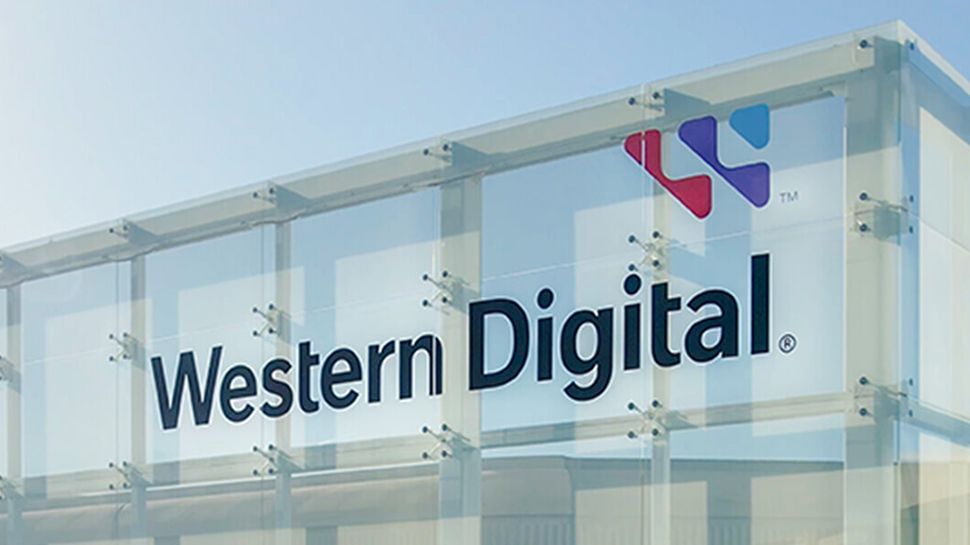- Best small business checking quick comparison
- Chase: Best overall small business checking account
- Bluevine: Best for high APY and line of credit
- Capital One: Best for unlimited daily transactions
- U.S. Bank: Best for free checking account and high welcome bonus
- Relay: Best for teams seeking more accounts and debit cards
- Grasshopper: Best high-yield bundled business accounts and free payment software
- Mercury: Best for robust startup services and high FDIC coverage
- Novo: Best for speedy fund access and express payments
- North One: Best for budgeting and multiple software integrations
- Found: Best for freelancers and self-employed professionals
- How to choose the best small business checking accounts
- Methodology
- Frequently asked questions
Opening a business checking account is recommended for business owners when establishing their first enterprise to build credibility, simplify bookkeeping, and protect personal assets. However, in a sea of choices, it can be challenging to find the most suitable account. The best small business checking accounts will offer interest earnings, no monthly fees, and no ATM charges. It will also provide more business support products and services to keep your company operation running smoothly.
We compiled a list of financial providers to help you narrow down your choice. Here is a list of our 10 best small business checking accounts.
- Best overall small business checking account: Chase
- Best for high APY and line of credit: Bluevine
- Best for unlimited daily transactions: Capital One
- Best for free checking account and high welcome bonus: U.S. Bank
- Best for teams seeking more accounts and debit cards: Relay
- Best high-yield bundled business accounts and free payment software: Grasshopper Bank
- Best for robust startup services and high FDIC coverage
: Mercury - Best for speedy fund access and express payments: Novo
- Best for budgeting and multiple software integrations: North One
- Best for freelancers and self-employed professionals: Found
Best small business checking quick comparison
The table below shows the top factors we evaluated for the 10 best small business checking accounts.
Chase: Best overall small business checking account
Our rating: 4.35 out of 5
A household name in the banking industry, Chase provides small businesses with three checking options that scale as your business grows. As a full-service bank, Chase offers small businesses savings accounts, credit cards, and other lending products, including payment solutions and collection services.
What we like about Chase is that small businesses can bank online and in person. Its ubiquitous presence in 48 states makes it convenient to visit one of its branches. Under its basic tier checking product, you can deposit cash fee-free up to $5,000 each month, which is often unavailable or limited for many fintech providers.
Why we chose it
Chase Complete Business Banking® is our overall best checking account for small businesses because it has a waivable monthly fee and easy waiver conditions. You will get 20 free teller and paper transactions and unlimited debit card and ATM transactions, including solid accounting software integrations. We named Chase our top bank for QuickBooks integration.
In addition, Chase’s basic tier account uses a built-in payment processor (QuickAccept) that lets you accept your customer’s credit card payments for free via the Chase mobile app. With a Chase account, you can send digital invoices and secure payment links. Opening a Chase Complete Business Banking® account also entitles eligible customers to a $300 welcome bonus by meeting qualifying conditions.
Monthly fees
- Chase Business Complete Banking®: $15; waivable by having any of these:
- $2,000 average daily balance (ADB).
- $2,000 Chase Ink Business Cards spend.
- $2,000 in deposits from Chase QuickAccept or other eligible Chase Payment Solutions transactions.
- Chase Private Client Checking account.
- Qualifying proof of military status.
- Chase Performance Business Checking®: $30; waivable by meeting a $35,000 or greater combined ADB in qualifying business deposit accounts.
- Chase Platinum Business CheckingSM: $95; waivable by meeting a $100,000 combined ADB across qualifying business deposit and investment accounts. With a linked Private Client Checking account, the required ADB is $50,000.
Features
- Free associate and employee debit cards upon request.
- Digital banking and branch locations in 48 states.
- Chase Bank QuickBooks integration.
- Built-in card acceptance through its mobile app.
- Low to no fees for FX transactions made via online or Chase’s app.
- Fraud protection services.
- Payment and invoicing services via Chase Payment Solutions.
- Online and branch customer support.
Pros and cons
| Pros | Cons |
|---|---|
| No required opening deposit and minimum balance for basic checking | No interest earnings |
| Unlimited debit card and ATM transactions | Only 20 fee-free teller and paper transactions |
| $300 cashback bonus for new accounts (conditions apply) | High balances to waive the monthly fees for premium checking accounts |
Bluevine: Best for high APY and line of credit
Our rating: 4.25 out of 5

Ranking high on this list is a popular fintech company, Bluevine. It has excellent checking products that promote high-yield earnings, including an outstanding line of credit. Aside from its competitive rates, Bluevine edges many providers with its robust business integrations, fast international payment option, and reduced fees for ACH and outbound wire transfers. You also get five fee-free subaccounts and a high FDIC insurance coverage of up to $3 million.
What we like about Bluevine is its interest-earning business checking accounts, which is uncommon. Typically, financial providers offer little to no APY earnings for checking products. It also provides two free physical checkbooks, while other fintech platforms don’t have this option or limit sending a physical check only through the app.
Why we chose it
We included Bluevine on this list because you can earn an APY of 2.0%
This APY applies to account balances up to $250,000.
from a fee-free Bluevine Standard account by meeting one of these easy conditions: making a monthly Bluevine debit card purchase of at least $500 or receiving a monthly payment of $2,500 into your checking account. The APY increases the higher your account tier level. Should you need additional financing, you can apply for a line of credit with low rates and business revenue requirements. Both business checking and financing are great packages for small business owners.
Monthly fees
- Bluevine Standard: $0
- Bluevine Plus: $30; waivable by having:
- An ADB of $20,000 across your Bluevine checking account, including subaccounts.
- A spend of $2,000 monthly using your Bluevine debit or credit card.
- Bluevine Premier: $95; waivable by meeting:
- An ADB of $100,000 across your Bluevine checking account, including subaccounts.
- A spend of $5,000 monthly using your Bluevine debit or credit card.
Features
- No fees for ACH and incoming domestic wires.
- Business credit card with unlimited cashback and no annual fee.
- Free ATM access at over 37,000 MoneyPass locations.
- Lines of credit of up to $250,000 at low rates.
- International payments to 32 countries in 15 currencies.
- Quickbooks, Xero, and Wave integrations.
- Wise, Venmo, CashApp, and Square compatibility.
- FDIC insurance of up to $3 million.
Pros and cons
| Pros | Cons |
|---|---|
| High business checking APY rates | No savings products |
| Account applications take minutes and can be approved within 24 hours | $2.50 for non-network ATM use, plus third-party operator fees |
| No minimum balance requirement or monthly fee for Bluevine Standard | No ATM fee reimbursement |
Capital One: Best for unlimited daily transactions
Our rating: 4.17 out of 5

Capital One is a traditional bank offering a full suite of products and services. Its Basic Checking account is useful for small businesses since digital transactions are fee-free and unlimited. The account has a waivable monthly fee as long as you can maintain a minimum of $2,000 in average monthly balance within a 30 or 90-day period. Minimum balances and an opening deposit are not required.
What we like about Capital One is that users have access to an outstanding digital platform and physical locations, which include full-service branches and cafes, which are combined coffee shops and limited-service bank branches.
Why we chose it
We chose Capital One Basic Checking because you can save when performing everyday transactions, such as mobile deposits, ACH payments, and online bill pay. You also get a monthly cash deposit allowance of $5,000 and can save on ATM withdrawals since Capital One has a huge network of over 70,000 ATMs, which includes in-house, MoneyPass, and Allpoint. You can also access a great selection of business savings, small business administration (SBA) loans, and credit cards.
Monthly fees
- Basic Checking: $15; waivable by having:
- A $2,000 minimum 30-day or 90-day average monthly ledger account balance, whichever is greater
- Enhanced Checking: $35; waivable by having:
- An $25,000 minimum 30-day or 90-day average monthly ledger account balance, whichever is greater
Features
- Free overdraft protection.
- QuickBooks and Xero integration.
- Waived monthly fees for additional accounts.
- Free inbound domestic wire transfers under the higher-tier checking.
- Remote deposit capture and fraud prevention services.
- More than 70,000 in-house, Allpoint, and MoneyPass network ATMs.
- Various business credit cards available.
- Features business savings, certificates of deposit (CDs), and lending products.
Pros and cons
| Pros | Cons |
|---|---|
| Unlimited and fee-free digital transactions | Branches are few |
| No opening deposit and required balance minimums | No interest earnings for checking accounts |
| Up to $5,000 cash deposit allowance for basic account | No free wires |
U.S. Bank: Best for free checking account and high welcome bonus
Our rating: 4.05 out of 5

U.S. Bank offers a fee-free checking account, Silver Business Checking, which has a free monthly transaction of 125 and a monthly cash deposit allowance of up to $2,500. When withdrawing from an ATM, you won’t be charged a fee if you use U.S. Bank ATMs and those in the MoneyPass network. U.S. Bank also offers a specialty nonprofit account with no monthly maintenance fee, high transaction limit, and cash deposit allowance, which is why it’s part of our best banks for nonprofit organizations.
What we like about U.S. Bank is it offers plenty of business banking services. You can prevent check fraud, protect your account from overdrafts, and deposit checks electronically through remote deposit capture. You can also take advantage of the bank’s payment processing, cash management, and payroll services to streamline your business operations.
Why we chose it
U.S. Bank’s Silver Business Checking account is one of our best business checking accounts for small businesses because you don’t have to worry about meeting any conditions to waive its monthly fee. It is also easy to open an account online and in-person with its multiple locations in 28 states. In addition, new U.S. Bank business checking users can earn a welcome bonus of up to $900 (promo code: Q4AFL24) upon meeting qualifying activities. The offer is valid through January 15, 2025. Member FDIC.
Monthly fees
- Silver Business Checking: $0
- Gold Business Checking: $20; waivable by having any of these:
- A U.S. Bank Payment Solutions Merchant account.
- $10,000 average collected balance.
- $20,000 combined average collected business deposit balances.
- $50,000 combined average collected business deposits and outstanding credit balances.
- Platinum Business Checking: $30; waivable by having any of these:
- $25,000 average collected checking balance.
- $75,000 combined average collected business deposits and outstanding credit balances.
Features
- No monthly fee for Silver Business Checking.
- QuickBooks and ADP integrations.
- Point-of-sale (POS) solutions and cash management services.
- Overdraft protection.
- High-yield money market accounts.
- Check fraud prevention services.
- Zelle integration.
- SBA loans, lines of credit, and term loans.
Pros and cons
| Pros | Cons |
|---|---|
| No monthly fee for basic tier checking | Steep balances are required to waive monthly fees for high-tier accounts |
| No ATM fees on the MoneyPass network | Low free cash deposit limit for basic accounts |
| $900 welcome bonus | Minimal interest is offered for interest-bearing checking products |
Relay: Best for teams seeking more accounts and debit cards
Our rating: 3.97 out of 5

Another outstanding fintech is Relay, offering two business checking accounts to small businesses. One is a basic tier product, Relay Business Checking, with no monthly fee. The other is a paid product, Relay Pro, which costs $30 monthly. Both accounts have no opening deposit or minimum balance requirement. Both also offer unlimited transactions. The difference is the paid plan offers 50 same-day ACH transfers and fee-free outgoing domestic and international wire transfers.
What we like about Relay is you can open reserve accounts, issue and customize debit cards, and have the option to earn a tiered APY from 1% to 3% when you open a business savings account. Sending wire transfers for Relay business checking users is also cheaper at $5 per domestic wire and $10 per international wire compared to other financial institutions.
Why we chose it
If you have a large team, opening a Relay business checking account is an excellent choice. You can issue up to 50 physical and virtual debit cards and open up to 20 subaccounts. These features make it easy for you to budget, segregate your business funds and company expenses, and track employee spending. Team collaboration is also a breeze because you can assign different user permissions to distribute financial tasks, such as paying bills or creating ACH, wire, or check payments.
Monthly fees
- Relay Business Checking: $0.
- Relay Pro: $30; not waivable.
Features
- Debit cards can be customized.
- Shared account access.
- Integrates with QuickBooks, Xero, Gusto, and Plaid.
- Compatible with PayPal, Stripe, Square, Wise, and Venmo.
- Tiered APY for Relay business savings accounts.
- AI chatbot, including email, chat, and phone support.
- Relay Visa® Credit Card is available by invitation.
- Free outgoing wires and same-day ACH under Relay Pro.
Pros and cons
| Pros | Cons |
|---|---|
| Fee-free incoming wire transfers | Checking accounts does not earn APY |
| 20 subaccounts under a single ID (10 for sole proprietors) | Lacks business lending products |
| FDIC insurance coverage of up to $3 million |
Grasshopper: Best high-yield bundled business accounts and free payment software
Our rating: 3.82 out of 5

Grasshopper is a digital bank offering two interest-earning checking accounts and debit card cash back rewards. Small and mid-sized companies can open an Innovator Business Checking account, while startups and venture capital firms can choose an Accelerator Business Checking account. Both will require an opening deposit of $100, but monthly fees remain free. If you pair them with money market accounts, higher interest can be earned.
What we like about Grasshopper is its unlimited 1% cash back
The cash back reward is available only if you maintain a $10,000 average monthly balance in your account.
when you use its debit card for qualified online and in-store purchases. You can also access startup banking services, SBA loans, and commercial real estate (CRE) loans.
Why we chose it
Grasshopper is another best bank for small business checking accounts because you can get an uncapped APY of 2.00% with Innovator Business Checking. Bundling it with an Innovator Money Market Savings Account can significantly boost your earnings to 3.30% as long as you meet a minimum monthly balance of $25,000. Additionally, small businesses can save a lot since Grasshopper accounts seamlessly integrate with Autobooks, allowing free digital invoicing and payment acceptance.
Monthly fees
- Grasshopper Innovator Checking: $0.
- Grasshopper Accelerator Checking: $0.
Features
- Unlimited 1% cash back on online and signature-based purchases.
- Free physical and virtual Visa rewards debit cards.
- Free bill pay and check deposit services.
- Free domestic ACH and wire transfers for qualified balances.
- Autobooks, QuickBooks, and Plaid integrations.
- Up to 3.55% APY for bundled Accelerator Checking and Accelerator Savings Account.
- FDIC insurance of up to $125 million.
- US-based customer support via phone, email, chat, and secure message.
Pros and cons
| Pros | Cons |
|---|---|
| Interest-bearing account | Minimum $100 opening deposit |
| No monthly or transaction fees | Cash deposits are not accepted |
| Cash back on debit card purchases |
Mercury: Best for robust startup services and high FDIC coverage
Our rating: 3.75 out of 5

Startups seeking a largely fee-free business checking account can consider the fintech Mercury. It offers unlimited transactions, no monthly fees, initial deposits, and fee-free wire transfers. You can also benefit from venture debt financing and fundraising through simple agreements for future equity (SAFEs) and investor programs. In addition, you can choose between free or paid plans for efficient financial workflows, specifically bill payments and automated accounting.
What we like about Mercury is its many software integrations, which include QuickBooks, Xero, Stripe, Square, and PayPal. It also offers over 100 deals, such as discounts and free trials for useful business tools that you can take advantage of. See Mercury’s Perk page.
Why we chose it
Not only does a Mercury business checking account allow startups to save, but it also provides solid support through an investor database, a SAFE generator, and advanced accounting automation options. Additional business funding is possible by participating in Mercury’s networking program. What’s more, your company funds are covered by up to $5 million in FDIC insurance
Mercury is a fintech company, not an FDIC-insured bank. Deposits in checking and savings accounts are held by our banking services partners, Choice Financial Group and Evolve Bank & Trust ®; Members FDIC. Deposit insurance covers the failure of an insured bank. Certain conditions must be satisfied for pass-through insurance to apply.
via sweep networks of its partner banks, Choice Financial Group and Evolve Bank & Trust.
Monthly fee
- Mercury Business Checking: $0.
- Mercury Plus: $35.
- Mercury Pro: $350.
Features
- Mercury investor database for potential funding.
- Mercury Raise program for networking and mentorship.
- SAFE is an early financing option for startup companies.
- Physical and virtual debit cards.
- 14 subaccounts.
- QuickBooks, Netsuite, and Xero accounting software integrations.
- Compatible with Shopify, Stripe, Square, Zapier, Amazon, and PayPal.
- Advanced accounting automation under a subscription plan.
Pros and cons
| Pros | Cons |
|---|---|
| Accounts have unlimited transactions and no monthly fees or opening deposits | No cash deposit support |
| No wire transfer fees | Cannot open sole proprietorship and trust accounts |
| Various software integrations | Checking and savings accounts are non-interest bearing |
Novo: Best for speedy fund access and express payments
Our rating: 3.60 out of 5

Novo is another popular fintech issuing a fee-free business checking account that does not charge monthly fees or require an opening deposit or minimum balance. Transactions are unlimited while incoming domestic wires remain free. Novo allows fast access to your Stripe payments via Novo Boost and lets you expedite payments through Express ACH. You can also send payments to international business partners at a low fee because Novo has a partnership with Wise.
What we like about Novo is that you can transact at any ATM network and get a monthly fee refund of up to $7 for both domestic and international ATM transactions. You can also allocate budgets for your business expenses and purchases through the Novo Reserves tool.
Why we chose it
We chose Novo since its business checking account has excellent features, such as Novo Boost and Express ACH for fast money transfers that help to increase working capital and business inventory. You can receive your Stripe customer payments early and can send funds to your business vendors within the same day. Additionally, you can integrate with QuickBooks, Xero, Square, eBay, and Etsy and create unlimited and free invoices from your account.
Monthly fee
- Novo Business Checking: $0.
Features
- Physical and virtual debit cards.
- ATM fee refunds each month.
- Free incoming wire transfers and standard ACH fees.
- Cash deposits can be made via money orders.
- Integrates with QuickBooks, Stripe, Square, and PayPal.
- Free and unlimited invoicing.
- Discounts on QuickBooks, Stripe, and Google Cloud through Novo perks.
- Up to $75,000 merchant cash advance via Novo Funding.
Pros and cons
| Pros | Cons |
|---|---|
| Up to $7 monthly ATM fee refunds | No APY |
| No opening deposit or monthly fee | Cash cannot be deposited directly |
| Can receive payments faster via Novo Boost | No savings products |
North One: Best for budgeting and multiple software integrations
Our rating: 3.56 out of 5

The fintech North One offers a standard account with no monthly fees, unlimited transactions, and an opening deposit of $50. North One features free incoming domestic wire transfers and refunded deposit and ATM withdrawal fees. You can also apply for lines of credit and term loans for business financing. For lower outgoing domestic wire fees, you can subscribe to a higher plan, North One Plus.
What we like about North One is its robust software integrations, which include accounting, financial management, invoicing, payments, eCommerce, payroll, and productivity tools. You can simplify account reconciliation and track business expenses and income easily.
Why we chose it
We included North One in our list of the best small business checking accounts for its excellent budgeting tool, Envelopes. You can allocate for expected business expenses, such as taxes, payroll, or rent, by setting up unlimited envelopes. North One also links with over 50 business software, which increases team productivity by accessing your day-to-day tools. It also leads to greater visibility of sales, profits, and expenses across popular platforms.
Monthly fee
- North One Standard Account: $0.
- North One Plus Account: $20.
Features
- Account opening approval as fast as three minutes.
- Physical and virtual cards for each owner.
- Free bill pay and unlimited ACH and domestic wire deposits.
- Integrates with QuickBooks, Wave, Patriot Accounting, Zoho, and more.
- Compatible with Stripe, PayPal, Square, Shopify, Amazon, and eBay.
- Paper checks can be sent via the North One account.
- Discounts and free trials of business software and productivity tools.
- Deposit and ATM withdrawal fee refunds.
Pros and cons
| Pros | Cons |
|---|---|
| Unlimited transactions | No APY is provided |
| Sales, payments, spending, and budgeting are viewed in one place | Lacks interest earnings |
| Its budgeting tool helps categorize funds | No savings accounts |
Found: Best for freelancers and self-employed professionals
Our rating: 3.51 out of 5

Found’s business checking account, like most fintech business checking products, is free with no monthly fees, opening deposit, or minimum balance requirement. Found also features auto tracking of expenses and receipt capture. It also provides real-time tax estimates and makes it easy to file taxes by generating a Schedule C form for solopreneurs. In addition, Found lets small business owners create and customize unlimited invoices for free.
What we like about Found is its extensive tax preparation assistance and built-in bookkeeping software, which is essential to freelancers and self-employed individuals who want to save time and reduce paperwork. Accounting support is limited for small business owners, so these features are beneficial.
Why we chose it
We chose Found since its features align with the needs of freelancers and self-employed professionals seeking a business checking account that integrates with bookkeeping and tax tools. Through Found, one-person businesses can gain greater productivity with its efficient business features. Tracking and controlling expenses is also easy with its seamless integration with popular payment apps, such as Venmo, Cash App, PayPal, and Square. If you upgrade to Found Plus, you can pay taxes directly from the app and also get an APY bonus for qualified balances capped at $20,000.
Monthly fee
- Found Business Checking: $0.
- Found Plus: $19.99 per month or $149.99 per year.
Features
- Tax tools for payment, auto-saving, and write-offs.
- Free and unlimited invoices.
- QuickBooks integration and built-in Found bookkeeping software.
- Payment integrations include PayPal, Cash App, Square, Stripe, and Venmo.
- No credit checks and ACH fees.
- No ATM fees since Found does not charge for ATM withdrawals
. - 1.5% APY on balances up to $20,000 for Found Plus subscribers.
- Customized bookkeeping and priority customer service under Found Plus.
Pros and cons
| Pros | Cons |
|---|---|
| No required monthly fee, minimum balance, or opening deposit | Limited to checking products |
| Expense tracking with receipt capture | No physical check support |
| Free integrated bookkeeping and tax tools | No international wire transfer support |
How to choose the best small business checking accounts
We looked at the following factors when evaluating and assigning a rating for the best small business checking accounts:
- Monthly fees and waiver conditions.
- Minimum opening deposit and required maintaining balances.
- Interest rate offered.
- ATM fees and transaction limits
- ATM network access.
- Cash deposit options.
- Wire transfer costs.
- Account features.
- Business software integrations.
- Business products and services offered.
- Customer support availability.
- App ratings.
Methodology
Before completing the best small business checking accounts list, we reviewed the bank’s interest rate offer and fee structure, which includes the monthly fee, opening balance, and ATM fees. In addition, we looked at the ease of account opening and considered the availability of customer support, additional banking products, account features, and app ratings. We also evaluated the cash deposit options and monthly transaction limits.
Frequently asked questions
Which bank account is best for a small business?
The best bank account for a small business is a business checking account because it allows you to make business payments and debit card purchases. Many checking accounts also provide check-writing privileges, which makes it easy to send check payments to your business suppliers or partners.
What do you need to open a business checking account?
To open a business checking account, you must present a government-issued ID, provide your personal and business information, and submit your EIN and the required business documents, including applicable licenses. You also need to prepare the initial deposit required to fund the account.
Do I need a business checking account?
Yes, you need a business checking account if you are running a business to separate your personal funds and keep track of your company’s revenue and expenses. A business checking account will also help you build your business credit, enhance your company’s credibility, and simplify tax preparation.
Can I open a business checking account without EIN?
It depends. Sole proprietorships or single-member limited liability companies (LLCs) can open a business checking account using a Social Security number (SSN). However, an EIN is essential for all other business types when opening an account.
This article was reviewed by our banking expert Tricia Jones.





